Archive
31 May 2021
Bendiks Jan Boersma in various media
25 May 2021
Earl Goetheer in various media
18 May 2021
TU Delft and Volvo collaborating on Prognostics for new generation of trucks

Now it is time for trucks to join the transition to zero emission, and uptime is key to make this a success. In a new research project with the Volvo Group, Riccardo Ferrari of the Delft Centre for Systems and Control is looking to improve service life through predictive analytics.
18 May 2021
‘Cohesion researchers’ unravel the mystery of hydrogen effects on materials
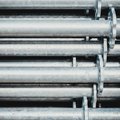
Steel pipelines can become brittle due to hydrogen and can therefore break. Fascinated by this urgent problem, Carey Walters (MTT), Othon Moultos (P&E) and Poulumi Dey (MSE) joined forces and turned to the cohesion programme to work on this together.
10 May 2021
Theun Baller in Delft.business
10 May 2021
A little walk can make ridesharing a lot more efficient
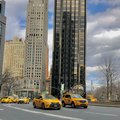
Ridesharing can benefit from using pick-up and drop-off points and asking users to walk a small distance. Researchers at TU Delft have analyzed this by using a real dataset of 10.000 Manhattan taxi trips. They have published their results online in Transportation Research Part C.
30 April 2021
TU Delft starts ‘Wind Farm Flow Control Project’
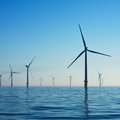
Together with CrossWindHKN Siemens Gamesa Eneco GROW offshore wind a group of researchers led by professor Jan-Willem Van Wingerden TU Delft have started the work on the "Dynamic Wind Farm Flow Control" project. This project focuses on reducing the wake effect by using real-time data that will contribute to a more constant electricity production.
22 April 2021
ERC Advanced Grant for smarter control of energy and transportation networks

In the future, we will see an increasing number of smart transportation and energy networks. However, online control of these large and complex networks is still far from optimal. Researcher Bart De Schutter has received a EUR 2.5 million ERC Advanced Grant from the European Union to tackle this problem over the next five years.
22 April 2021
Girls’ Day 2021: primary school introduced to BioMechanical Engineering
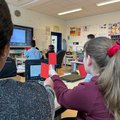
An operating robot inspired by the strength and movements of an animal. And an extremely strong human bone, the largest part of which resembles a sponge. During Girls’ Day 2021, Aimée Sakes and Eline Kolken (assistant professor and PhD student in BioMechanical Engineering) introduced pupils from the ages of 10 to 12 to the world of BioMechanical Engineering.
22 April 2021
Biomechanics researchers ‘appreciated’ for science communication
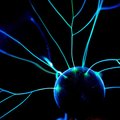
Researchers from the Department of BioMechanical Engineering, have been committed to science communication for years, on their own initiative. That’s why the Royal Netherlands Academy of Arts and Sciences (KNAW) is rewarding these enthusiastic biomechanical engineers with the Pilot Fund Science Communication ‘Appreciated’ of 10.000 euros.
19 April 2021
TU Delft develops ‘stumble tracker’ for trauma surgeon
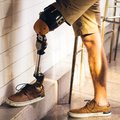
We’re all familiar with the step tracker these days. Now there’s something new: the stumble tracker. This invention by TU Delft is helping a trauma surgeon at Erasmus MC to measure whether people using a new kind of prosthetic leg stumble less frequently. ‘This partnership has a bright future.’
14 April 2021
TU Delft research partner at solar parking lot in Dronten
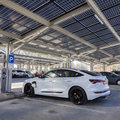
A parking lot with solar panels where renewable energy generation, electric charging and energy storage are cleverly integrated. In the Municipality of Dronten, the official opening of a parking lot with 1,100 solar panels is taking place today, which, in combination with a large battery, will make the town hall energy-neutral.
12 April 2021
Hans Hopman in various media
08 April 2021
Jork Stapel in NRC
25 March 2021
TU Delft participates in development of energy label for yachts
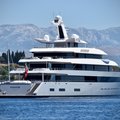
How enviromentally friendly is yacht building actually? Can you compare one yacht to another? And how can we ensure that all yacht builders take the same approach, so that we can ultimately reduce the footprint of yachts?
18 March 2021
Wim Haije in Atlas
11 March 2021
Tech for Health: building a unique Erasmus MC lab to combat arthritis
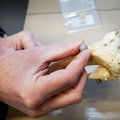
This month, the University Fund and TU Delft launched a campaign called Tech for Health | Better healthcare thanks to Delft technology. The campaign comprises seven pioneering and illustrative studies, each symbolising the many unique innovations and collaborations taking place at TU Delft and the medical centres.
11 March 2021
Gerjo van Osch receives Suffrage Science Award on International Women’s Day
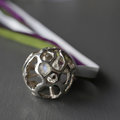
Gerjo van Osch, part-time professor of Integrative Cartilage Regeneration at the Department of BioMechanical Engineering and principal investigator at the Department of Orthopaedics & Otorhinolaryngology at Erasmus MC, received the Engineering and Physical Sciences Suffrage Science award on International Women’s Day.
09 March 2021
Liselore Tissen: new ‘Face of Science’
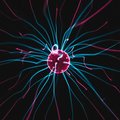
Today, the Royal Netherlands Academy of Arts and Sciences (KNAW) announced the twelve new ‘Faces of Science’. Liselore Tissen, PhD student at the department of Materials Science and Engineering and part-time at Leiden University, is one of the 12 new faces.
08 March 2021
Carey Walters in Atlas
08 March 2021
Geert Keetels in various media
01 March 2021
Simulations to make insight into electrokinetic transport more reliable
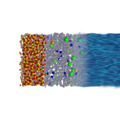
Researcher Remco Hartkamp and PhD student Max Döpke of the Process & Energy Department have taken an important step in making simulation results for electrokinetic transport more reliable by using molecular simulations.
24 February 2021
TU Delft develops 'brains' for buildings

A large consortium led by TU Delft is going to provide ‘brains’ to buildings. The Dutch Ministry of Economic Affairs and Climate Policy has allocated 6.9 million euro to the Brains 4 Buildings project.
23 February 2021
Farbod Alijani in various media
21 February 2021
Gerard Verbiest in various media
Techniques to extract information from plants about what they need. In 4TU.techtalk #3 Gerard Verbiest (4TU Plantenna/ TU Delft) and Jan Westra (Priva) discuss smart agriculture.
17 February 2021
Researchers clarify the microscopic origin of dissipation with graphene
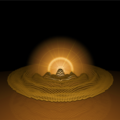
Associate professor Farbod Alijani and PhD student Ata Keşkekler have provided supporting evidence for the existence of a nonlinear dissipation mechanism in mechanical systems.
01 February 2021
TU Delft and ASML map non-visible materials at nanoscale with ultrasound
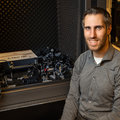
The increasing miniaturisation of electrical components in industry requires a new imaging technique at the nanometre scale. Delft researcher Gerard Verbiest and ASML have developed a first proof-of-concept method that they now plan to further develop.
28 January 2021
Deep-sea mining less harmful to environment thanks to new ‘minerals collector’
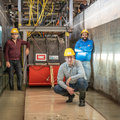
. Rudy Helmons, onderzoeker Offshore and Dredging engineering, ontwierp in samenwerking met IHC Mining de collector 2.0. Een op waterdruk gestuurde ‘stofzuiger’ die grondstoffen op de zeebodem verzamelt waarbij minder sediment opgepakt wordt en minder water verloren gaat.
21 January 2021
Johan Padding in KIJK Magazine
Glas is vloeibaar, noch vast. Om die reden bijten natuurkundigen al jaren hun tanden erop stuk. Maar nieuw onderzoek licht een tipje van de sluier op.
07 January 2021
ERC Proof of Concept grant for Farbod Alijani
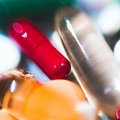
Farbod Alijani, Associate Professor at the department of Precision and Microsystems Engineering, has been awarded a Proof of Concept grant by the European Research Council. He is one of 55 ERC grant holders that are set to receive top-up funding in this round to explore the commercial or innovation potential of the results of their EU-funded research.
17 December 2020
Award for paper on world’s first catheter able to make S-shaped curves in all directions
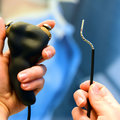
A team of researchers from the Department of BioMechanical Engineering and the Bio-Inspired Technology Group (BITE) has developed the ‘4 DoF Steerable Sigma Catheter’, the world’s first catheter with a tip able to make S-shaped curves. This catheter is controlled by two joysticks and was developed for complex interventions in the heart.
15 December 2020
Peter Steeneken in various media
10 December 2020
Wouter van den Bos in various media
TU Delft has developed software that makes it possible to calculate the risks of contamination with the corona virus for a specific area. The model virtually places a sick person in a room and simulates how quickly the virus particles spread. This can be used to calculate how safe it is in areas such as airplanes, classrooms or restaurants.
10 December 2020
Lorenzo Botto in various media
Researchers develop first model to guide large-scale production of ultrathin graphene
10 December 2020
Ad van Wijk in various media

According to professor Ad van Wijk, hydrogen is one of the most sustainable substances to store energy.
09 December 2020
Existing neighbourhoods energy-neutral thanks to innovative solar heat network
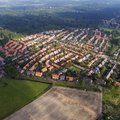
A solar heat network has proven to be technically and financially feasible for making existing neighbourhoods more sustainable and natural gas-free, as demonstrated by a consortium led by TU Delft
08 December 2020
Miguel Bessa and Richard Norte have been awarded the Interstellar Initiatives Grant

Miguel Bessa and Richard Norte have been awarded an Interstellar Initiatives Grant from the Limitless Space Institute. The award is for their research ‘Origami Photonic Crystal Sails with Machine Learning’. Their research focus is about the development and demonstration of nanoscale origami photonic crystal membranes using data-driven machine learning.
03 December 2020
Technical Medicine master students tackle COVID-19 cases
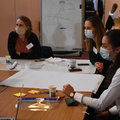
During the COVID Case Day, thirty master students from the Technical Medicine programme studied COVID-19-related cases submitted by various hospitals and health-care institutions.
02 December 2020
TU Delft software for determining contagion risk for specific locations
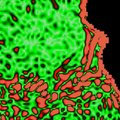
TU Delft professor of aerodynamics Fulvio Scarano, together with fluid mechanics expert Lorenzo Botto and simulation expert Wouter van den Bos, has developed software to calculate the risk of Covid-19 contagion at specific locations. The model virtually places a sick person in the space in question and simulates how quickly virus particles spread. The TU Delft researchers hope that designers will use the software to make predictions for determining whether an aircraft, classroom or restaurant, for example, is safe. The plug-in will probably become available in February.
30 November 2020
Using artificial intelligence to solve arson offences

. In partnership with the Netherlands Forensic Institute (NFI), Thijs Vlugt, Mahinder Ramdin and Otto Moultos, researchers at the Department of Process & Energy, developed a new method using artificial intelligence that can be used to solve arson offences.